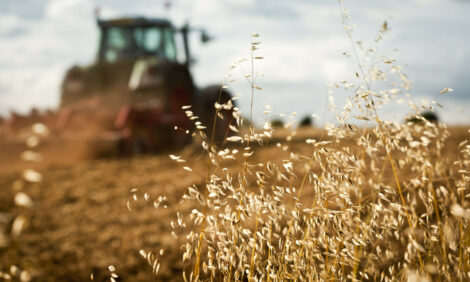



Farming's GHG Action Plan Delivers
UK - While the independent Committee on Climate Change has urged the UK government to increase the ‘pace of measures to reduce emissions fourfold’, it believes that agriculture’s Greenhouse Gas Action Plan has at least effectively delivered its early objectives.In its 4th progress report, published last week, the committee is clearly concerned that this government has put tackling climate change on the backburner.
The report finds that despite economy-wide greenhouse gas emissions falling by 7 per cent in 2011, due to mild weather, higher fuel prices etc, only 0.8 per cent is the result of proactive carbon lowering measures.
In contrast, the committee says the first phase of the Greenhouse Gas Action Plan “has been successful in identifying priorities for on-farm actions and establishing the pilot Farm Efficiency Hub”. The fillip folllows a letter from farming minister Jim Paice to NFU Vice President Adam Quinney and other action plan partners, congratulating them on the progress made to date.
An NFU spokesman said: "We’re very pleased that our early efforts have been recognised. But we know that we have a long journey ahead if we’re to continue to make a realistic contribution to tackling climate change without compromising domestic production
"The committee sets out that we need to do more work on the next phase of delivery and put in place a monitoring framework to demonstrate progress. We will ensure that we act to maintain their confidence, especially as emissions from farming increased slightly in 2010.”
The Committee on Climate Change analysis did show that agricultural emissions increased by 0.9 per cent in 2010, the result of higher output.
However given the reductions in previous years, the industry is still on track to meet its commitments by the end of the decade. The emissions intensity (emissions per unit of output) of livestock production improved, particularly in dairy, but worsened for crop production as the weather impacted on yields.
Despite good early progress the committee still wants government to look at the full range of policy options, including carbon pricing, cap and trade and regulation, for the future.
TheCattleSite News Desk


